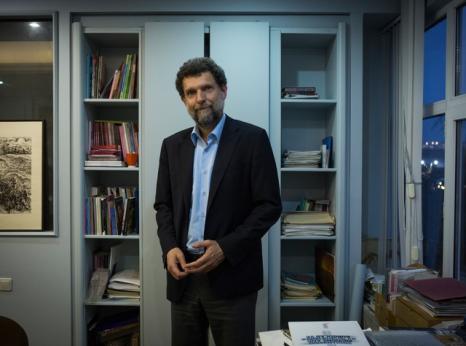Turkey: Free The Gezi Defendants

Osman Kavala has spent more than 4.5 years in pre-trial detention under three separate charges since he was first detained in November 2017: attempting to overthrow the constitutional order (Article 309 of the Turkish Penal Code (TPC), in relation to allegations linking him to the 2016 failed coup); attempting to overthrow the government (Article 312 of the TPC in relation to his alleged role in the mass 2013 Gezi Park protests); and political and military espionage (Article 328 of the TPC, also relating to allegations that he had played a role in the failed coup). The Gezi Park trial in which 16 defendants were indicted began in June 2019. Kavala was accused of financing the protests and organising them with two of his co-defendants (charged under article 312). Six other people faced a range of other charges. On 18 February 2020, the trial ended with nine defendants acquitted of all the charges, the case against the remaining seven was separated due to their absence during the trial. The court also ordered Osman Kavala’s immediate release from prison, but the Istanbul Chief Prosecutor issued a separate detention order. Osman Kavala was first taken into police detention and returned to prison the next day, having been remanded under Article 309, on charges alleging that he had played a role in the 2016 coup attempt. In March 2020, the charges were changed to ‘political and military espionage’, which allowed the authorities to continue to detain him. Pre-trial detention under a particular criminal charge cannot exceed two years unless an indictment is accepted by a court.
In January 2021, the Istanbul regional appeals court overturned the acquittals of Osman Kavala and eight others, and a retrial began in May 2021. In the meantime, acquittals in another case related to the Gezi Park protests -- the Carsi trial involving 35 football supporters - were also overturned on appeal. The two prosecutions were merged in a legally questionable process over the summer of 2021. The merged, mass trial of 52 defendants began in October 2021. In February 2022, a fourth hearing took place soon after the formal start of the infringement proceedings at the Council of Europe (CoE) for non-implementation of the Kavala ruling of the European Court of Human Rights (ECtHR), after which the cases were again separated on request of the trial prosecutor. The sixth and final hearing concluded on 25 April 2022.
This politically motivated prosecution and concomitant unjust sentences exemplify how executive control and political influence over the judiciary in Turkey have become widespread and systematic. Courts routinely accept bogus indictments in order to detain and convict individuals and groups that the government regards as political opponents, in the absence of compelling – or any- evidence of criminal activity, particularly in the context of the attempted coup in July 2016.
The April 2022 conviction was handed down in the absence of any credible evidence to substantiate the charges levelled against Osman Kavala and his co-defendants. This is the latest stark example of the chronic lack of independence of the judiciary in Turkey. The ECtHR, in its December 2019 ruling, found that the Turkish authorities had violated not only Osman Kavala's right to liberty and security, but that they had the ulterior purpose of silencing him and dissuading other human rights defenders from carrying out legitimate activities.
Despite the decision in February 2022 by the Council of Europe’s Committee of Ministers to formally initiate an infringement procedure because of Turkey’s refusal to comply with the ECtHR ruling and immediately release Osman Kavala, Turkey sentenced Kavala to life in prison without parole. As a member state of the Council of Europe, Turkey has the obligation to implement the binding judgments of the Court. Its continued refusal to implement this ECtHR ruling should sound an alarm about the Turkish judiciary’s lack of adherence to international and European human rights and rule of law standards.